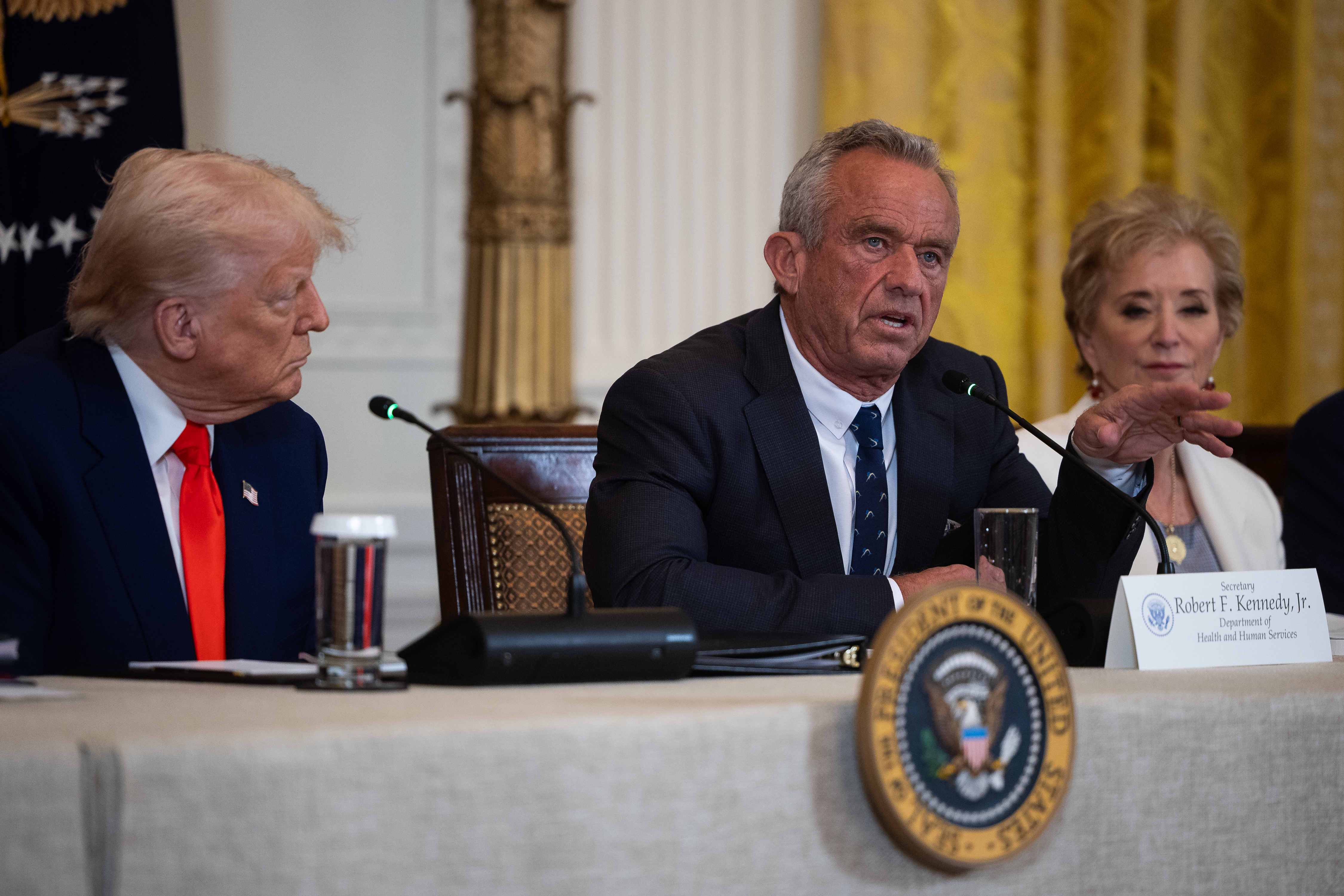Health and Human Services Secretary Robert F. Kennedy Jr. has tapped eight new members to join the Centers for Disease Control and Prevention’s independent vaccine advisory committee, just two days after he fired the previous slate.
The new members include well-known vaccine skeptics and others who have been critical of Covid vaccines or pandemic interventions like lockdowns.
Stream NBC 5 for free, 24/7, wherever you are.
Kennedy, a high-profile figure in the anti-vaccine movement, said Wednesday on X that the members would convene June 25 for a scheduled meeting. He referred to them as “highly credentialed scientists, leading public-health experts, and some of America’s most accomplished physicians.”
The list includes Dr. Robert Malone, an anti-vaccine activist who suggested this year, without evidence, that recent pediatric deaths from measles were due to medical error, and Vicky Pebsworth, director of research and patient safety at the National Vaccine Information Center, considered a leading source of misinformation about vaccines.
Historically, members of the Advisory Committee on Immunization Practices, known more commonly as ACIP, have undergone an extensive vetting process before they were appointed that can take months to years. The panel typically consists of 15 or more members, meaning the meeting in two weeks would be about half the normal size. It was not clear whether Kennedy intended to appoint additional members.
Department of Health and Human Services spokesperson Andrew Nixon said Wednesday evening that “all newly appointed ACIP members were thoroughly vetted” but declined to offer specifics about what the vetting process entailed or how long it took. Regarding the qualifications of new members who have criticized vaccines, Nixon referred NBC News to Kennedy’s comments on X.
“Being a vaccine skeptic is not a bad thing if you follow the science,” said Dr. Georges Benjamin, executive director of the American Public Health Association, a group that has called Kennedy and his policies a danger to public health. “I’m concerned that the names he’s put out so far aren’t ideologically balanced. I think he got the slate he was looking for.”
Noel Brewer, an ACIP member who was fired this week, told MSNBC on Wednesday that the panel’s charter requires members to be replaced on a rolling basis.
“The new panel is missing all of the expertise that has come before them,” said Brewer, a professor in the department of health behavior at the University of North Carolina Gillings School of Global Public Health. “They don’t know how to go about looking at the evidence, how to think about the volumes of data that will be coming their way.”
Feeling out of the loop? We'll catch you up on the news you need to know with the Chicago Catch-Up newsletter.
Dr. William Schaffner, an infectious disease expert at Vanderbilt University Medical Center, similarly noted that “it’ll be a big challenge for these new members because there will be a number of new issues to come up for votes.”
“Unless they have followed the ACIP deliberations personally, they won’t be as up to date on these various issues,” Schaffner said.
ACIP is normally made up of pediatricians, geriatricians and other vaccine experts. The group Kennedy selected includes a psychiatrist and neuroscientist, epidemiologist and biostatistician, and professor of operations management. One newly appointed member, Dr. Cody Meissner, a pediatrics professor, served on ACIP from 2008 to 2012.
The psychiatrist and neuroscientist, Joseph Hibbeln, formerly worked at the National Institutes of Health. His research has focused on omega-3 fatty acids, including the neurocognitive development of children whose mothers consumed seafood during pregnancy.
The professor of operations management, Retsef Levi, who teaches at the MIT Sloan School of Management and does not have a medical degree, has called for an end to Covid vaccinations, claiming mRNA vaccines cause serious harm and death, especially among young people. In reality, the vaccines come with a very small risk of inflammation of the heart muscle, but data has overwhelmingly shown they're safe and effective.
The epidemiologist and biostatistician, Martin Kulldorff, is one of the authors of the Great Barrington Declaration, a pandemic strategy that decried lockdowns and advocated for letting people at minimal risk of dying get exposed to Covid. Dr. Jay Bhattacharya, the director of the National Institutes of Health, was another co-author.
Rounding out the list of new ACIP members are Dr. Michael Ross, whom Kennedy described Wednesday as a professor of obstetrics and gynecology, and Dr. James Pagano, an emergency medicine physician.
Kulldorff, Malone, Meissner and Pebsworth are included in the dedication of Kennedy’s 2021 book, “The Real Anthony Fauci,” about the former director of the National Institute of Allergy and Infectious Diseases. The acknowledgments were first noted by STAT.
ACIP is meant to analyze the latest data on the safety and efficacy of vaccines, including newly approved inoculations and new data about existing vaccines. The panel offers recommendations to the CDC about who should get certain vaccines, including the schedule for childhood vaccinations. Several times a year, the committee holds public meetings at which data is presented and reviewed. While the CDC is not required to follow the advice, it often does.
Advisory members are also required to disclose conflicts of interest, recusing themselves from voting on vaccines for which conflicts exist. It is not clear whether Kennedy has required those disclosures for the new members.
Kennedy said Monday in an editorial in The Wall Street Journal that ACIP “has been plagued with persistent conflicts of interest and has become little more than a rubber stamp for any vaccine.” Members of the medical community have widely resisted that claim, saying there is no evidence to support it.
This story first appeared on NBCNews.com. More from NBC News:



